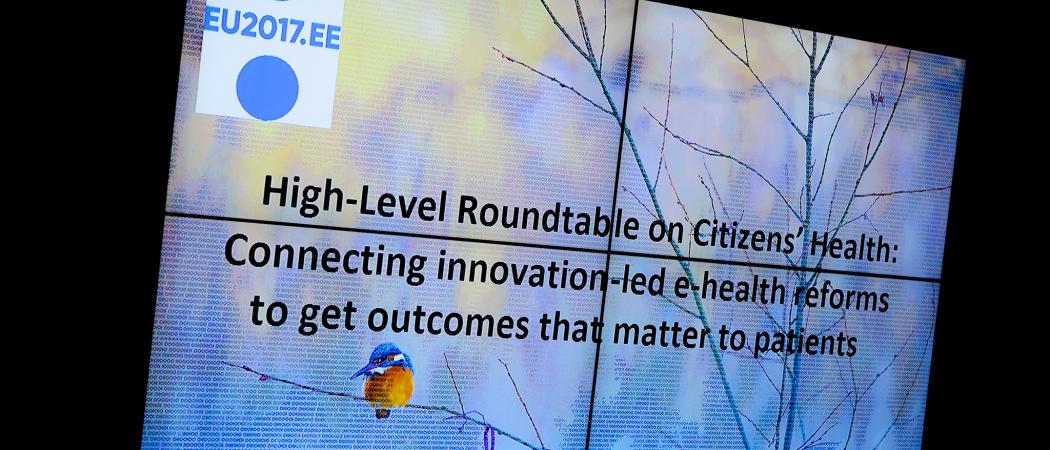A Science|Business roundtable in Tallinn, as part of Estonia’s EU Council Presidency, offers some suggestions about how to get the best healthcare outcomes for citizens

TALLINN, Estonia - The patient as CEO – Chief Experience Officer: That is how a senior Dutch health official, Erik Gerritsen, describes the idea behind an effort around Europe to give patients more control over their own healthcare and how it feels to them.
At the heart of this drive is the personalisation of care that comes from better use of health data – everything from clinical statistics on what treatments work best, to raw patient data from scanners and health apps. And the individual patient has to be in charge of how that data is gathered and used, says Gerritsen, secretary general of the Dutch Ministry for Health, Welfare and Sport. “Everyone has the right to a digital copy of his or her data,” he says.
This idea, that patients should be in control of their own data and healthcare, is one of seven conclusions arising from a roundtable discussion of public and private sector health experts organised at Tallinn University of Technology on 16 October 2017, as an official event of the Estonian Presidency of the Council of the European Union. The event was convened by Science|Business as part of its Healthy Measures initiative to get better outcomes for patients through smarter use of health data.
An ideal view of what health systems could look like was offered in a ‘Letter from the Future’ that a Spanish doctor, Blanca Usoz Oyarzábal, received from one of her patients. In it, the patient describes how in 2027 she will have “a personal, vital health record. This record belongs to me – it’s not extensively linked to any specific health organisation, but it interacts with all of them.”
‘Treat human beings, not just illness’
With it, patients can choose to connect to other doctors – and to other patients for peer support. Consultations often happen online. Clinical drug trials are easier. Prevention and diagnosis are personalised, with genetic and metabolic information. The letter is reprinted, with permission, in a Science|Business report of the meeting and its conclusions.
Getting to this kind of digital-enabled health world is going to be hard work, however. Among the issues to be addressed, according to participants in the roundtable, are setting technical standards for the records; changing the mindset and organisation of health carers to look at the data on what works best for patients; greater investment in computer infrastructure, and a big effort to train and educate patients and carers alike about the opportunities and challenges of data-enabled healthcare.
Doctors need to remember that their role is not merely to treat illness, “but to treat human beings,” said Cristian Grasu, a doctor and state secretary for health in Romania. “There is an art to medicine: sympathy may outweigh the knife. (As technology advances) we have to think twice: are we improving the partnership with the patient?”





 A unique international forum for public research organisations and companies to connect their external engagement with strategic interests around their R&D system.
A unique international forum for public research organisations and companies to connect their external engagement with strategic interests around their R&D system.